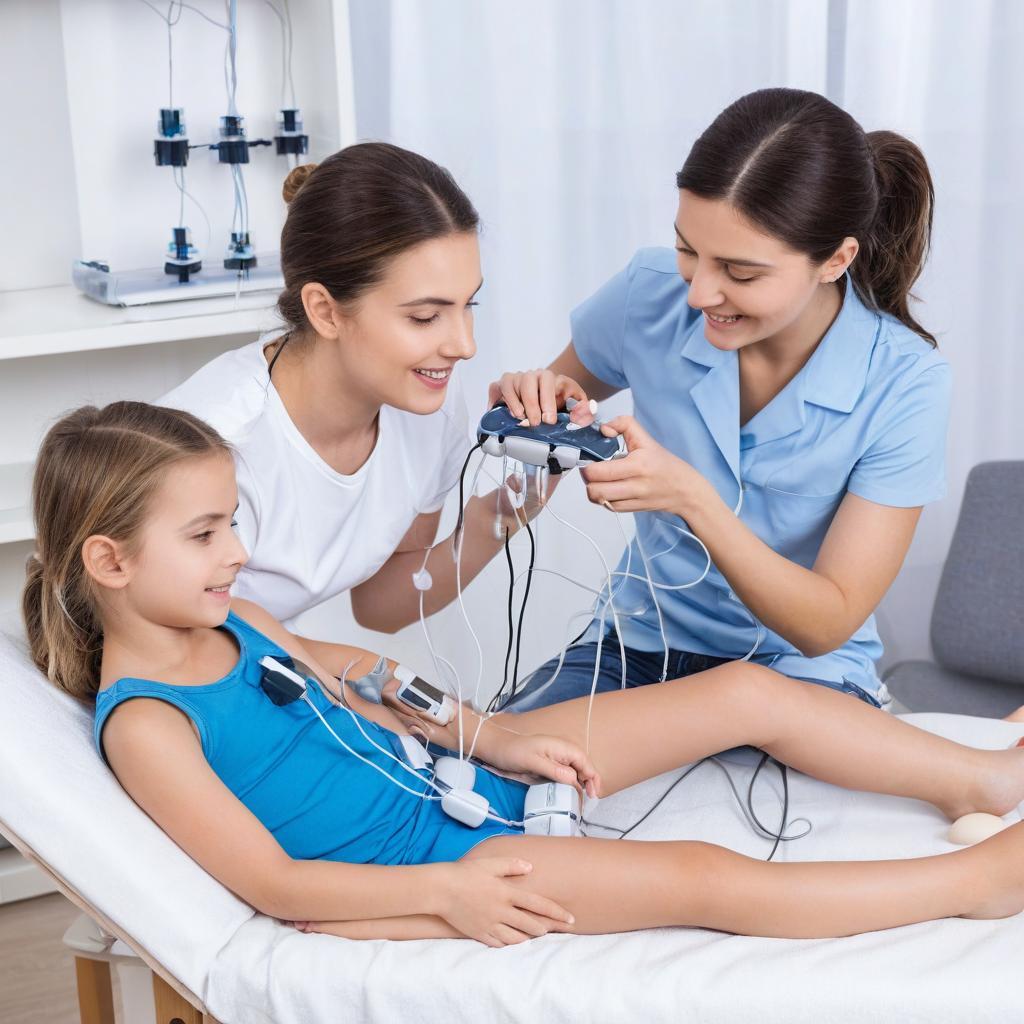Innovation
Exercise-based rehabilitation is already part of the treatment of cystic fibrosis (CF); however, patient compliance is low.
To evaluate the effectiveness of a home exercise program using active video games (AVGs) as a training modality for children and adolescents with CF.
Evaluation System
Exercise capacity was measured using the 6-minute walk test (6MWT) and the modified shuttle walk test (MSWT); muscle strength was estimated using the horizontal jump test (HJT), the medicine ball throw (MBT) and handgrip strength (right [RHG]; left [LHG]); and quality of life was assessed using the Cystic Fibrosis Questionnaire-Revised (CFQ-R). All the children were assessed at baseline, after rehabilitation and at 12 months.
For the ANOVA tests of group × time interaction, the AVGG showed significant differences between the groups in exercise capacity: longest 6MWT walking distance, 38.4 m (p < 0.01); longest MSWT walking distance, 78.4 m (p < 0.05); and muscle strength: HJT 9.8 cm, MBT 30.8 cm, RHG 7 kg and LHG 6.5 kg (p < 0.01), before versus after the intervention. The CFQ-R showed significantly higher scores in respiratory symptoms after the intervention and favored AVGG, and there was an improvement in other domains after 12 months. Adherence to the home exercise program was 95% during the 6-week intervention period.
Assessment
A home-based program using AVGs can effectively improve exercise capacity, muscle strength and quality of life in the short term in children and adolescents with CF. The effects of the training on muscle performance and quality of life were maintained over 12 months.
References
Del Corral, T., Cebrià i Iranzo, M. À., López-de-Uralde-Villanueva, I., Martínez-Alejos, R., Blanco, I., & Vilaró, J. (2018). Effectiveness of a home-based active video game programme in young cystic fibrosis patients. Respiration, 95(2), 87-97.
doi.org/10.1159/000481264" target="_blank">doi.org/10.1159/000481264" target="_blank">doi.org/10.1159/000481264" target="_blank">doi.org/10.1159/000481264
Desiree Leon Cardenes, Universidad de Las Palmas de Gran Canaria - Spain (ES)
Este estudio muestra que usar videojuegos, tecnología con impacto en la actualidad, de manera activa en casa, con herramientas como la Nintendo Wii, para ayudar a niños con fibrosis quística a mejorar su condición física, fuerza y bienestar general, con buenos resultados incluso un año después y una muy buena participación durante el programa.








